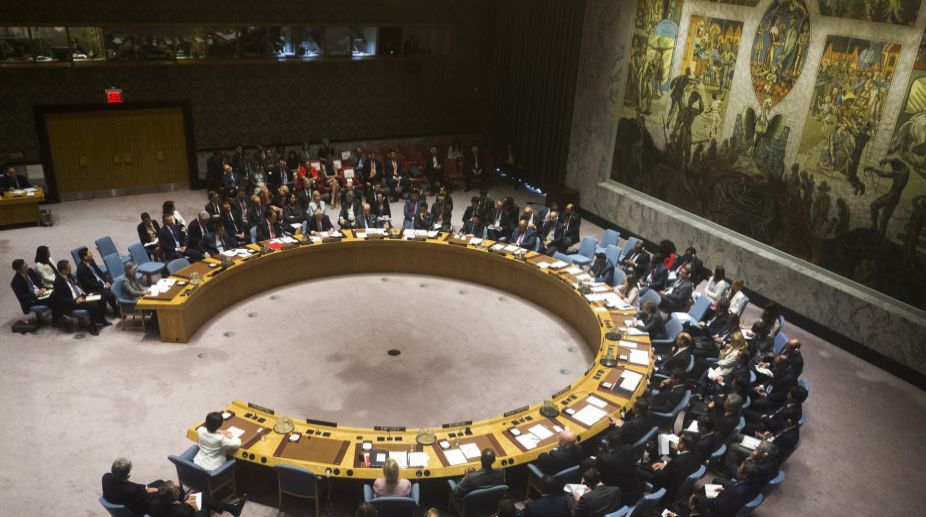BSF intercepts Bangladeshi woman crossing border
Amid rising tensions in Bangladesh, reports suggest that some individuals are attempting to cross the India-Bangladesh border illegally, seeking to settle in India.

UN Assembly (Photo: AFP)
With threats growing “exponentially”, India has appealed to the United Nations to adopt the Comprehensive Compact on International Terrorism (CCIT) that has been stalled for 21 years mainly over differences on defining who is a terrorist.
“Even as the global threat from terrorism countries to expand exponentially, we here at UN have so far been unable to adopt the CCIT,” Yedla Umasankar, the legal adviser at India’s UN Mission, told a meeting of the General Assembly committee on legal matters on Monday.
“We have even entangled ourselves in definitional issues as to who is a ‘terrorist’,” he said. “We sincerely hope that given the serious and growing menace of terrorism across continents, a genuine political will to cooperate on these issues will emerge.”
Advertisement
The CCIT was proposed by India in 1996 but has been blocked by disputes over who is a terrorist, with some countries claim that some terrorists are “freedom-fighters”.
Reinforcing the urgency for international cooperation on fighting terrorism, Umasankar said: “No one country, however rich or powerful, will be able to defeat this acting alone.”
“Terrorism knows no boundaries and much of it is the result of transnational network of terrorists and their organisations and the multiple purposes they represent,” he added.
Umasankar said that India was concerned about the financing of terrorists and strongly condemned governments or their agencies giving funds directly or indirectly to them or defending them in criminal cases.
India welcomed the creation of the Office of Counter-Terrorism (OCT), which it hoped will strengthen existing partnerships and develop new ones to fight terror, he said.
In June the General Assembly created the OCT, which was a high priority agenda for Secretary-General Antonio Guterres.
It is headed by an under-seceretary-general, Vladimir Ivanovich Voronkov, and it seeks to streamline and coordinate the UN’s anti-terrorism efforts that were scattered around 38 different agencies.
Advertisement